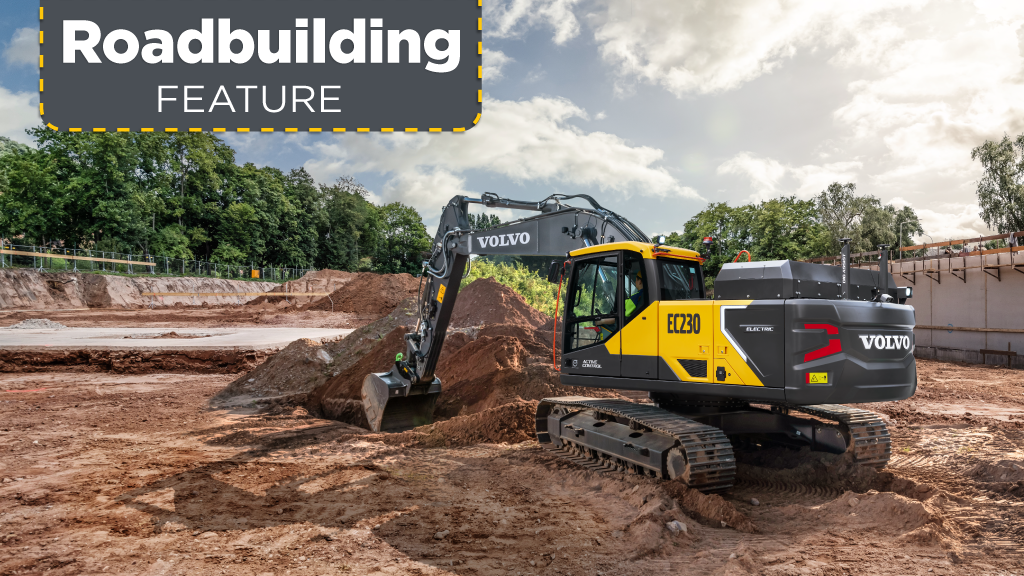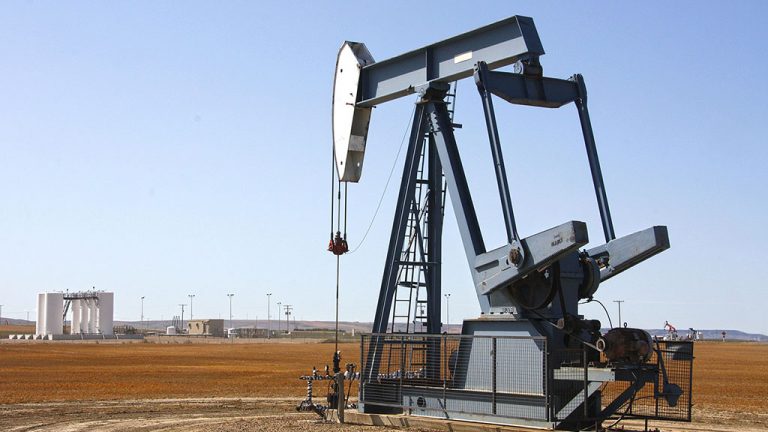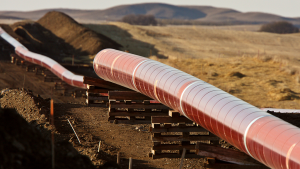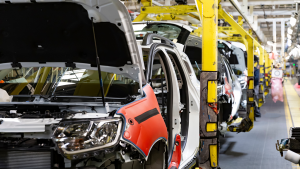The world is moving toward a more environmentally conscious, sustainable future —and that includes the construction industry, said Dr. Ray Gallant, vice-president of sustainability and productivity services at Volvo Construction Equipment (Volvo CE).
Speaking at the Innovation Alley session of the recent Western Canada Roadbuilders and Heavy Construction Association (WCR&HCA) 2023 conference, Gallant discussed zero-emission developments in the off-road sector, the latest environmental demands on private contractors and government entities and how low and zero-emissions machines are becoming more widely used in North America.
Gallant’s presentation, which was titled The State of Low and Zero-Emissions Construction Equipment: Key Trends and Considerations, covered a number of areas, including the current state of decarbonization of off-road heavy equipment and developments that will power larger equipment; how to make zero-emission machines part of a fleet or business model; and different kinds of refuelling infrastructure.
“Volvo CE is committed to three kinds of sustainability: Social sustainability, environmental sustainability and economic sustainability,” said Gallant. “They can’t be pursued in isolation. All three need to be kept in balance.”
To ensure the sustainability goals are working together, Volvo CE’s product solutions are based on three technologies: Digitization and artificial intelligence (AI), sustainable power and automation.
These technologies are the basis of Volvo CE’s line of solutions: Battery electric machines, energy management, hydrogen, alternate fuels, grid connected and hybrid.
In 2023, Volvo CE will be offering high-voltage heavy equipment, starting with the EC230 Electric Excavator, Volvo’s first electrified large excavator.
Not yet available on the market, the machine marks the first time Volvo CE has electrified a larger excavator as a customer pilot.
The 22-tonne machine was designed and built at the South Korea Volvo facilities.
Other speakers at Innovation Alley were Mike Lenzie, sales and marketing manager, Caterpillar Construction Technologies; Allan Cleiren, executive vice-president of Fire and Flood Emergency Services Ltd.; Bob Vaughan, president of Bob Vaughan and Associates; and Mark Wiese, senior marketing representative, McAsphalt Industries Ltd.
McAsphalt manufactures customized asphalt products at 26 locations across Canada.
The company said it has a specialty products laboratory that develops new products for the roadbuilding industry as roadbuilders’ needs change.
“We credit much of our success to being innovation leaders,” said Wiese. “Our mixes contain specialized polymers and additives that maximize pavement performance and longevity.”
Wiese said McAsphalt’s Everlife asphalt products have been equal to Canadian climate extremes.
“Everlife mixes have been very successful in B.C., Ontario and the Maritimes, with projects in the works for Manitoba and Alberta,” he said. “They are ideal for the most extreme climates where rutting and cracking can be major issues.”
To end the presentations, Vaughan said in order to achieve all of the benefits of innovation, a team with good skills is needed, so that all of a company’s innovators are working together efficiently as one.
Kelly Scott, president of BC Road Builders and Heavy Construction Association (BCRBHCA), attended the Innovation Alley session.
“We want to become a thought leader in driving innovation in roadbuilding,” said Scott.
He said BCRBHCA is committed to working with project owners so they can deliver innovative and more sustainable infrastructure.
It will also work with the provincial government to update the guide for reducing greenhouse gas (GHG) emissions from roadbuilding and maintenance and implement a GHG reduction program for roadbuilders.
Also in the works is an update, using 2022 survey data, of the Good Roads Cost Less white paper.
Scott said although investment in roads, bridges and tunnels is a significant capital expense, the long-term economic consequences of delaying upgrades are far more costly.
Poor roads cost Canadian drivers $3 billion a year in higher operating costs,
higher fuel costs, faster wear on tires, frequent repair and maintenance, and
accelerated vehicle depreciation.
In contrast, good roads save money, thanks to reduced cost to taxpayers in
emergency repairs, reduced cost to drivers and more efficient movement of goods and services.
WCR&HCA’s Stronger Together Conference took place in Hawaii in Februrary.
The event brought together Western Canada’s roadbuilding and heavy construction leaders for five days of meetings and networking.
The focus of the conference was on business sessions that dealt with trade, trade infrastructure, national advocacy priorities, the federal procurement process and innovation in heavy construction equipment and materials.











Recent Comments
comments for this post are closed